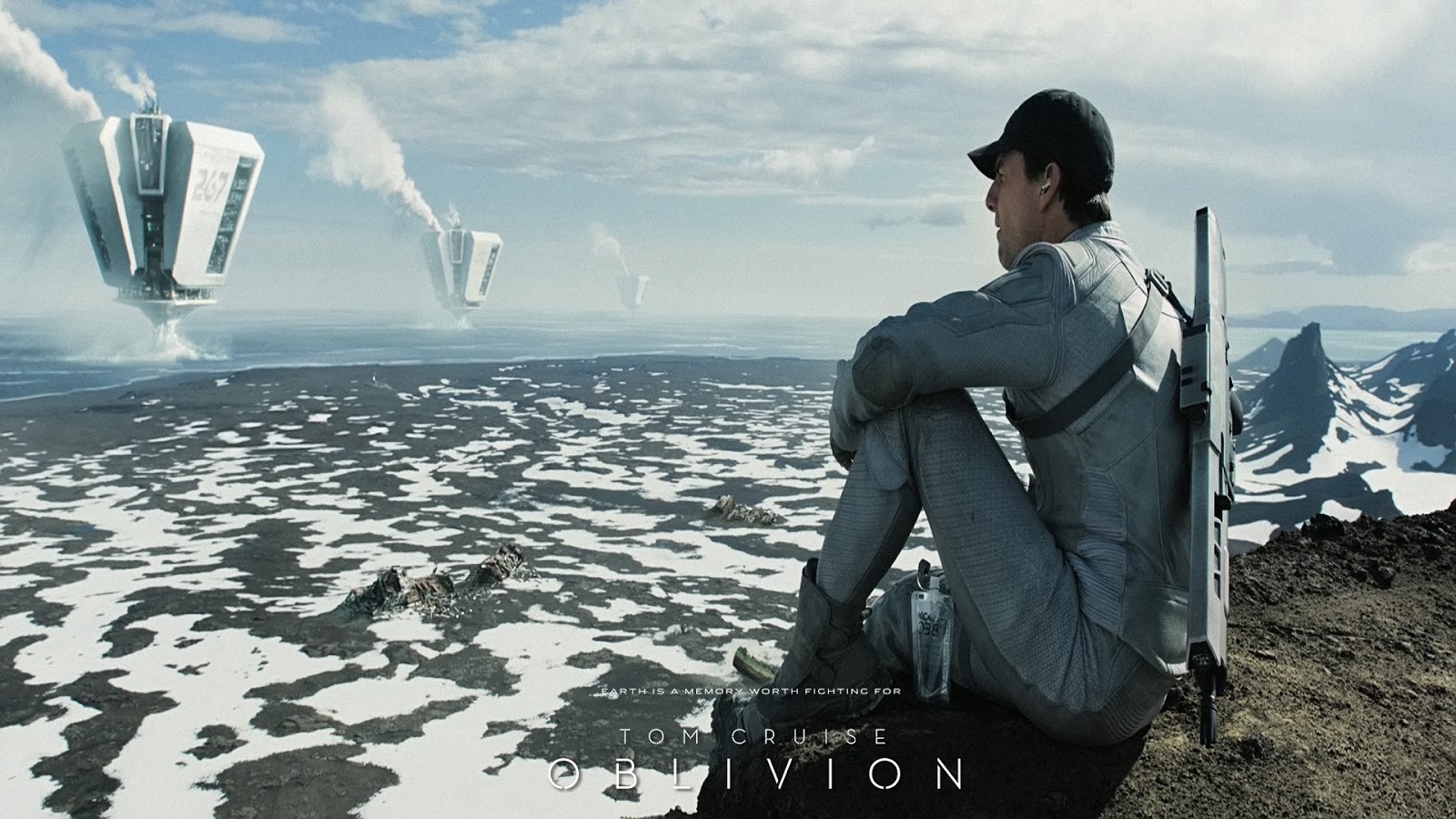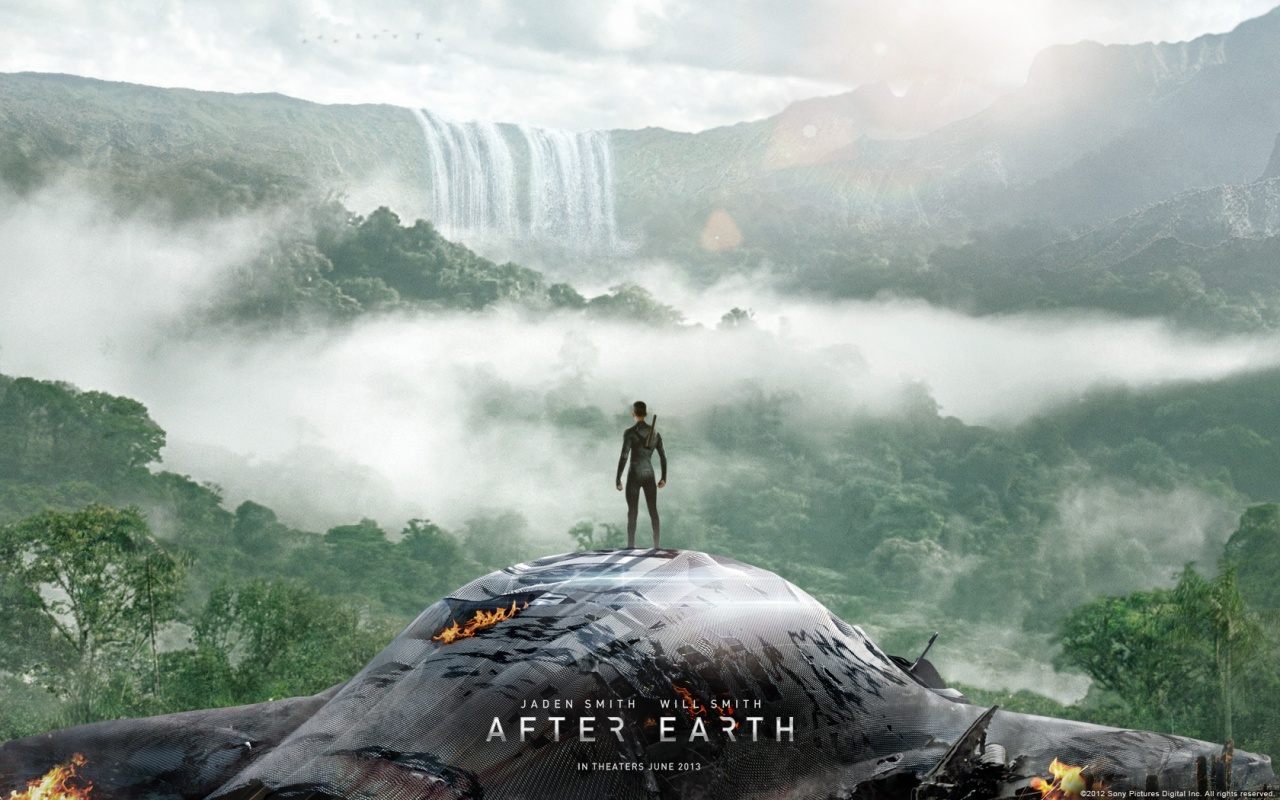OF the many "summer" blockbuster films already released this year, two in particular have posed an important question about our treatment of this planet we inhabit. Both the Tom Cruise film Oblivion, and Will and Jaden Smith's latest starrer, After Earth, offer us a glimpse into the future, where humankind has rendered the Earth uninhabitable.
Oblivion is set 64 years from now in 2077 and prominent throughout the movie are giant extractors draining the oceans and converting the seawater into energy.
After Earth is set over a thousand years from now and humans have rendered the planet unfit for human habitation and colonised another planet.
Last week I received a picture via social media of something I thought may have come from the sets of one of these movies. However, the shocking truth is that it was from nearby West Papua.
The text that came with the photo reads: "A gaping wound in the heart of Papua is visible from space". Every day thousands of tons of gold and copper are being extracted from Freeport mine. All the proceeds are channelled to Jakarta, while Papuans become poorer and poorer in their own land.
Freeport dumps over 238,000 tonnes of toxic waste into the local river system EVERY DAY. And pays the Indonesian military over $3 MILLION every year to kill local Papuans and keep them away from the mine."
Recently production at the US-owned Freeport-McMoran Copper & Gold Inc. ore mine Grasberg, Papua was suspended for three months following the deaths of 28 workers in a tunnel collapse on May 14, and after one more person, a truck driver, was also killed three weeks after the May 14 incident.
According to Wikipedia, the Grasberg mine is the largest gold mine and the third largest copper mine in the world. It includes a very large open pit mine, an underground mine and four concentrators. The open pit forms a mile-wide crater at the surface.
The concentrator's tailings, (the materials left over after the process) generated at a rate of 230,000 tonnes per day, are the subject of considerable environmental concern, as they wash into the Aikwariverine system and Arafura Sea. Native fish have nearly disappeared from now-turgid waters of the Aikwa River. The acidic runoff of dissolved copper, and the finer material gets washed into the headwaters of the Wanagon River. It settles out along the river course and then into the ocean, and will continue to do so indefinitely.
The mine is located within what used to be a small equatorial mountain glacier. Steepening of slopes related to mining activities, as well as earthquakes and frequent heavy rainfall has resulted in landslides within the open pit mine. While landscape reclamation projects have begun at the mine, environmental groups and local citizens are concerned with the potential for copper contamination and acid mine drainage from the mine tailings into surrounding river systems, land surfaces, and groundwater.
The Grasberg mine has been a frequent source of friction in Papua. Possible causes of friction are the mine's environmental impact on Papua, the perceived low share of profits going to local Papuans and the questionable legality of the payments made to Indonesian security forces for their services to guard the site.
I have discussed the continuing issue of West Papuan self-determination in previous articles in this column and on my blog (http://thejournalofaspiritualwonderer.blogspot.com) and Facebook page.
However the fundamental issue raised by the Freeport Mine in West Papua and the films Oblivion and After Earth for me are that of the systematic exploitation and destruction of Earth for the sake of financial gain. For too long now humankind has ignored the fact that we are co-inhabitors of this planet. We share this planet with millions, possibly billions of species of flora and fauna — plants and animals.
I am a firm supporter of human rights. As a Christian, I believe that my faith affirms the essence of human dignity, equality and liberty. However my faith also calls me to recognise that I am not apart from, but rather a part of, and in an integral relationship with, the rest of creation. It is a relationship that recognises the inherent goodness of all creatures and their integral place in the web of life. Humanity's role, therefore, is not of owner but of steward of creation.
With that in mind I suggest that we not only focus on human rights but the rights of this planet we call home. What are responsibilities as humans, not just to other humans but to the rest of creation? In the discussion on land rights, how many stop to give pause for responsibilities to the land?
Sustainable development is an old catch phrase. But just how sustainable is the exploitation of land and sea and seabed? Who measures this sustainability?
The phrase "Noqu Kalou, noqu vanua" is a double edged sword. It is not just an expression of "my God" and "my vanua" that has been touted for so long as a claim of ownership. It is an affirmation of relationship and mutuality. God is not only mine, I am God's. The vanua is not only mine, I am the vanua's — and the vanua is God's.
We have a responsibility to each other as fellow human beings. We also have a responsibility to this planet as co-inhabitors.
"Simplicity, serenity, spontaneity."
* Reverend JS Bhagwan is a Masters in Theology Student at the Methodist Theological University in Seoul, South Korea. The views expressed are his and not that of this newspaper.




No comments:
Post a Comment